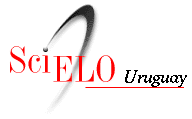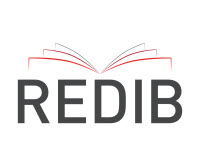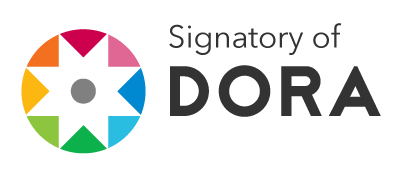Biblioterapia. Recomendaciones terapéuticas de libro en la autoterapia ampliada
Resumen
La recomendación de libros como instrumento terapéutico ha sido el eje central de la presente investigación, que postula a la biblioterapia como la terapia y tratamiento a través de los libros. Con el objetivo de conocer las encomiendas terapéuticas de libros en términos de autoterapia ampliada, se realizaron encuestas a 81 profesionales de la psicología de 8 países. 77 participantes son de América (57 de Argentina, 14 de Colombia, 3 de Brasil, 2 de Perú y 1 de Ecuador); 1 de Europa (España), y 3 de África (2 de Angola y 1 de Mozambique). Entre los participantes, 73 —que representan el 90,12 %— explicitaron que se valen de la biblioterapia como recurso. Los terapeutas expusieron sobre los autores y obras que sugieren a sus pacientes. Entre los motivos de recomendación, el de mayor frecuencia ha sido el de continuar aspectos trabajados durante la sesión a modo de autoterapia ampliada. Como conclusión se destaca la concordancia con los autores en los resultados aportados por los partícipes y se sugiere el uso de la biblioterapia en diferentes dispositivos de tratamiento.
Descargas
Citas
Bardají, A. F. (2016). Cómo afrontar la pérdida con Proust: un apunte de biblioterapia. Escritos de Psicología, 9(3), 60-67.
Clemente, J. E. (1964). Estética del lector. Buenos Aires: El Ateneo.
Deberti Martins, C. (2011). Leer: un derecho… también en el hospital. Información, Cultura y Sociedad, (25), 145-152.
Deberti Martins, C. (2013). ¡Los libros muerden! Biblioterapia en el portal amarillo. Informatio. Revista del Instituto de Información de la Facultad de Información y Comunicación, 18(1), 21-30.
Del Río, G. M. (2011). El valor de la biblioterapia en la vejez. Revista Portal De Divulgação, (15),25-33.
Frankl, V. (2012). Psicoterapia y humanismo. Ciudad de México: Fondo de Cultura Económica.
Frankl, V. (2013). El hombre en busca de sentido. Barcelona: Herder.
Kroeff, P., y Reverté, M. A. L. (2007). Biblioterapia con personas mayores en grupo pos-duelo. Boletín de Logoterapia y Análisis Existencial, 51-67.
Losada, A. V. (2014). Uso en investigación y psicoterapia del consentimiento informado. En B. Kerman, y M. R. Ceberio (Comps.), En búsqueda de las ciencias de la mente: investigación en psicología sistémica, cognitiva y neurocientífica (pp. 159-167). Buenos Aires: Ediciones Universidad de Flores.
Losada, A. V. (2020). La biblioterapia como recurso terapéutico interdisciplinario. Revista de Psicología, 19(1), 210-221.
Losada, A. V. (2021). Distorsiones cognitivas alimentarias. EnH. Fernández Álvarez (Ed.), Enciclopedia de salud mental. Buenos Aires: Aiglé.
Losada, A. V., y Rijavec, M. I. (2017). Consecuencias psicológicas en niños con obesidad producto de la estigmatización social. Revista Neuronum, 3(2), 46-65.
Losada, A. V., y Saboya D. (2013). Abuso sexual infantil, trastornos de la conducta alimentaria y su tratamiento. Psicología, Conocimiento y Sociedad, 3(2), 102-134.
Losada, A. V., y Zavalia, C. (2019). Programa psicoeducativo en trastornos de la conducta alimentaria. Revista Alternativas en Psicología, (41), 131-146.
Román, A. M. (2019). Imaginarios sociales de exreclusos sobre la lectura y el sentido de la vida: la función de la biblioterapia en personas privadas de su libertad (Tesis doctoral). Universidad Argentina John F. Kennedy, Buenos Aires.
Román, A. M. (2020). Revisión sistemática de artículos sobre biblioterapia y el sentido de la vida. Calidad de Vida y Salud, (13) 114-129.
Derechos de autor 2021 Analía Verónica Losada, Antonio Martín Román

Esta obra está bajo licencia internacional Creative Commons Reconocimiento 4.0.







.jpg)




















